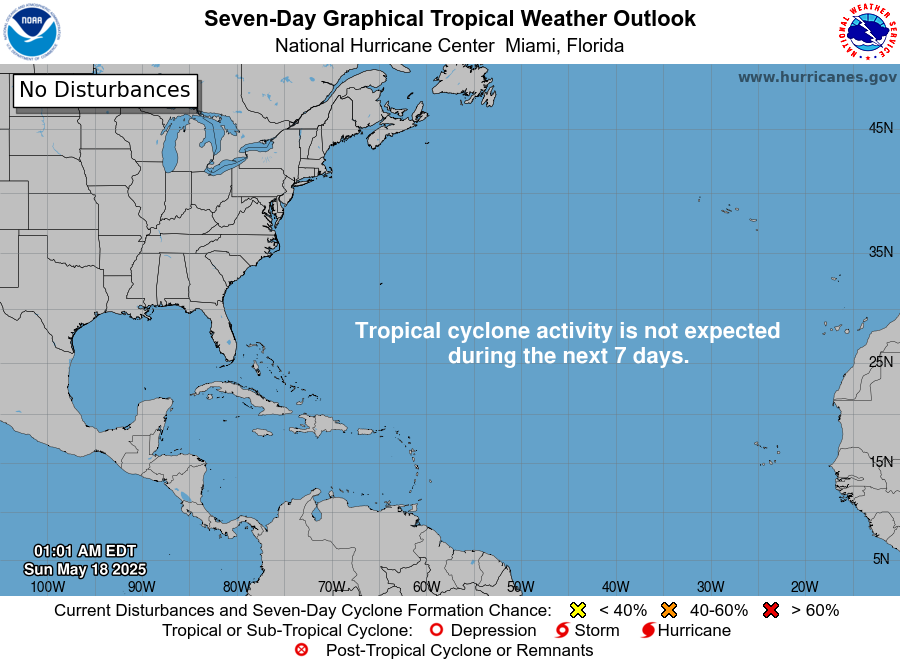Good morning. I hope you’re doing well. I’m writing this at the end of a busy week that hasn’t left me much time to think about a specific subject, so this will probably be both short and a little unstructured.
After a lull in activity, it seems the Atlantic is firing up for a busy end-of-season. To remind you, Hurricane season is from June to November, with a peak in early September and a spike in October. I’m looking forward to the end of this season.

Source: NOAA - 30th September 2024
One of the things that I have prioritised over the last few years is the importance of reading articles over short posts on Social Media. I’m not particularly active on Social Media; in fact, I only have three accounts, and only one of them is on a major platform. I have a “professional” account on LinkedIn, where I cross-post this article from time to time (I’ve automated it now, so it should be more frequent), and I have an account on Mastodon and one on Bluesky.
I tend to use these latter accounts for a little news and a little research. By curating a list of things I’m interested in, I avoid the usual traps of gamed social media that optimises for ‘engagement’ (i.e., advertising) over real connection. My timeline tends to contain research papers and news articles from major and minor publishers. The downside is that I have a never-ending mass of documents and articles to read, which is impossible to do in the time I have.
To give you an example, here’s a list of the articles and documents I set aside to read in the coming days and weeks:
CYBER-ACTIVISM WITHIN THE GLOBAL DIGITAL DIVIDE: A CASE STUDY OF PERU - This Master thesis is from 2014. I’m interested in how we used to think about these topics a decade ago, and I’m wondering if things have changed and, if so, how.
Towards a Digital Politics of Multiplicity: Social Media Networks and Global Justice Politics - A paper from 2021 to help me think about Social Media’s positive aspects. I’m a little net negative on social media. Having another perspective helps calibrate my thoughts.
THE CYBERSPACE MYTH AND POLITICAL COMMUNICATION, WITHIN THE LIMITS OF NETOCRACY - Another old-ish paper (2017) in Internet terms, but another one delving into the history of the Internet and the implications of its self-built myths.
The Politics of Cyberconflict - This is a long one, and I’m not sure I will get to read it all. But the title interested me, so I added it to the list. It’s another older paper from 2004, but again, it is helpful to understand how we thought of the Internet 10 to 20 years ago.
This is in addition to all the news articles and blog posts I’ve bookmarked for further reading:
‘We will coup whoever we want!’: the unbearable hubris of Musk and the billionaire tech bros - The Guardian
An interesting analysis of fair use and generative models – Baldur Bjarnason
Hacker plants false memories in ChatGPT to steal user data in perpetuity - Ars Technica
Signal’s Meredith Whittaker: ‘I see AI as born out of surveillance’ - Financial Times
In other news concerning the Internet, the Web Foundation has announced that it has shut down. The foundation was the brainchild of none other than Tim Berners-Lee, the inventor of hypertext and the web as we know it now. The foundation championed an inter-connected and decentralised web, only to have it steamrolled by the big social media companies with destructive business models. It is not the end for Tim. He’s going to concentrate on the Solid Protocol. I haven’t looked into it yet, so I don’t have an opinion. It’s on the list.
It’s probably a good point to remind you that, no, the free market didn’t innovate the Internet. It is entirely a project brought about by public funding, from the networks to the applications running on top.
Of note
I’ve started messing around with the site that hosts this text to try to customise it to my liking. I’ve made a couple of tweaks, and I hope I can do more in the future.
In order, I have modified the section divider in the text of these articles to show three stars (only on the website for the moment). I’ve always liked that look, but I couldn’t figure out how to modify the code to do that easily, so I gave up and prioritised other things. This weekend, I decided to make an effort and figured it out with some help from people on the forums. Thank you to them.
I renamed the Reading section “Working Library.” I like this term better because it better reflects what I’m doing with this list of books. The list is a bit of entertainment and a lot of learning, so it is more than a simple reading list.
The next big task is to improve the email newsletter template. It is rather rudimentary and utilitarian at the moment. That suits me fine, and I don’t expect to make it into one of those ghastly marketing “newsletters.” I just think it could do with a little spruce up here and there.
One thing that I should reiterate, if you didn’t know, is that both the website and the newsletter collect zero data on visitors. I have no idea if I’m writing into the void or not. I simply don’t know if the emails are being read or even if the site is being visited. Zero. The only way I can tell that the email is, in fact, being sent is the odd out-of-office message I get back from a subscriber.
I prefer to respect your privacy.
Hitting reply on the email will land in my inbox. Feel free to reach out.
Entering the last quarter of the year, thinking, “Where the hell did the year go?”. Have a great week.